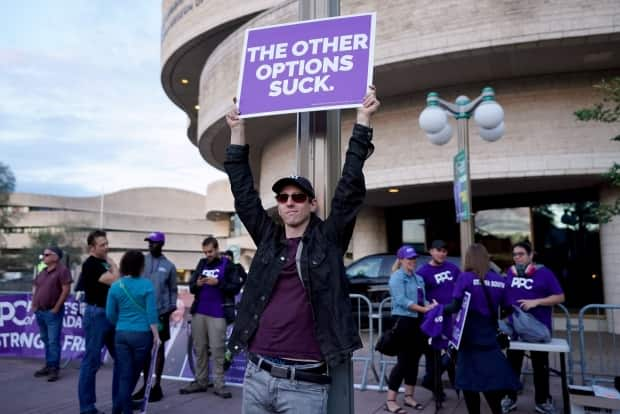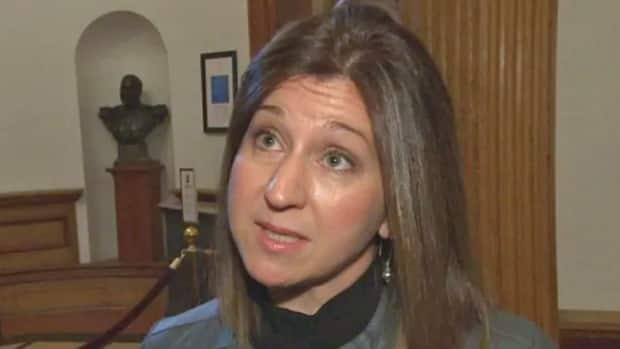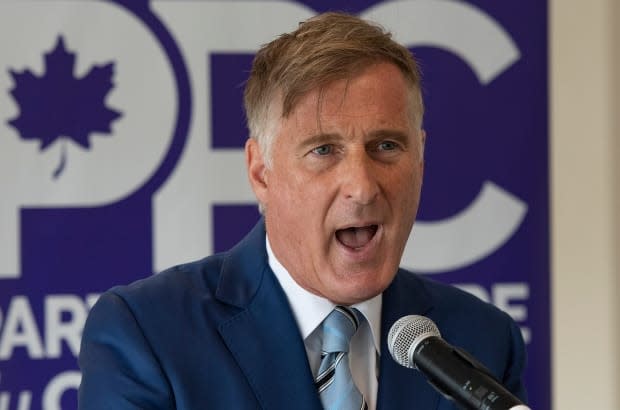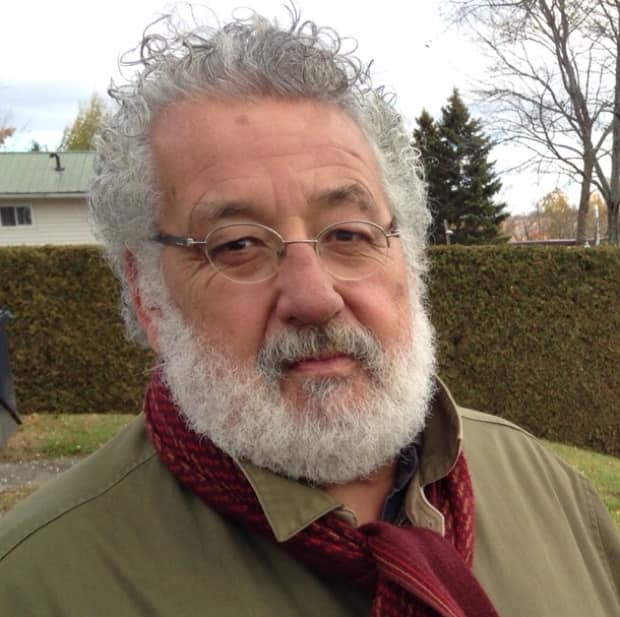Support for People's Party climbing, but impact in N.B. remains to be seen

Andrea Anderson-Mason was in a store in her riding last weekend when she was approached by one of her supporters with a message.
"They complimented me on the job we are doing here in New Brunswick," says the Progressive Conservative MLA for Fundy-The Isles-Saint John West.
"But they wanted to let me know they would be voting PPC in the federal election."
It wasn't the first time in the federal campaign that Anderson-Mason detected support for the People's Party of Canada among her provincial PC voters. She has seen PPC signs on some of their lawns.
That didn't happen in 2019, the first election for the PPC.
"I do a see difference this time compared to last time," she says. "I think it relates back to a general frustration with government as a whole."

It's anecdotal evidence but it matches national polling trends.
At the start of the campaign, the PPC, a populist-libertarian party founded by former Conservative MP Maxime Bernier, was below four per cent in most samples, falling short of the criteria for inclusion in the televised leaders' debates.
Now the party is up to around seven to nine per cent in some polls, meaning they could start having an impact on some races in New Brunswick.
"Every day it seems to be picking up a little bit more and a little bit more," says Nicholas Pereira, the PPC candidate in Saint John-Rothesay.
"There's a portion of the population that we can see is significant that now feels like they have a political home."

Liberal incumbent Wayne Long says Pereira "is certainly out and about. He's doing videos. He's knocking on doors and he's got signs up."
Last month a video of Bernier and Pereira crossing paths with provincial Education Minister Dominic Cardy got a lot of attention online. Pereira says it helped raise his profile.
The party's growth is fuelled by anger among a minority of Canadians over mask rules, proposed vaccination passports and mandatory vaccination rules in federal settings.
"I think a lot of people, whether vaccinated or unvaccinated, are concerned about the passports, what that would look like, and how it's going to fundamentally change how we operate," Pereira says.
Supporters of the passport concept, however, say it would be a convenient tool for people who have been vaccinated to live relatively safe, normal lives.
Bernier has opted not to be vaccinated, saying he doesn't think he'll get sick from COVID-19. That view is at odds with overwhelming scientific evidence that the risks of serious illness among unvaccinated people are far higher than the chance of any vaccine side-effects.

The PPC's denial that climate change is the result of human activity is also contradicted by decades of data.
But it's the vaccine issue that is driving the party's new support.
The PPC won 1.6 per cent of the vote nationally in the 2019 election, when libertarian economic issues and immigration were the focus of its campaign.
But in New Brunswick, it did better than that, with 2.1 per cent of the popular vote, its second best result among the provinces and territories.
In Miramichi-Grand Lake, PPC candidate Ron Nowlan won 1,216 votes in 2019, more than three times the margin of victory for the Liberal candidate over the second-place Conservative.
CBC poll analyst Eric Grenier, publisher of the polling newsletter the Writ, says it's hard to predict how the PPC will affect the vote this time because it's tricky measuring who its voters supported in the past.
"It's certain that the Conservatives are the ones who are losing most, but it's not clear how much of it it is," Grenier said.
At least some PPC voters did not vote last time. Pereira says he didn't cast a ballot in 2019 and was drawn to the party purely on the vaccination issue.
"A lot of people finally have gone, 'Politics does affect me, I should pay attention.'"
Others, like Moncton-area resident Serge Robichaud, are switching from other parties.
"I'm not impressed but what do I do? Who do I vote for?" - Moncton-area resident Serge Robichaud
Robichaud has been a Green Party supporter for more than a decade but says he made the switch when he heard provincial leader David Coon call for stricter vaccination requirements.
"It is the single most important issue for me in this election, and the only party that has spoken out against it is the PPC," Robichaud said.
He says he doesn't like Bernier's positions on other issues but the vaccine debate leaves him no choice.
"I'm not impressed but what do I do? Who do I vote for?"
The increase in popularity worries progressive voters like Richard Blaquiere, a retired Woodstock High School teacher who won the New Brunswick Human Rights Award for his work educating students about anti-Semitism and the Holocaust.
"There are several things in that platform that are worrisome," he says, such as the party's opposition to climate change action and multiculturalism. "It's not just the anti-vaxx thing."

Blaquiere's been monitoring the PPC online and says it's galling that party supporters compare vaccine passports to the yellow stars used by Nazi Germany to identify and stigmatize Jews.
He says the party is building support based on "what I consider to be manipulation of a lot of good people out of fear" and worries Bernier might win in the riding where he's running in Quebec. "If they get one seat, that's a foothold."
Anderson-Mason says she doesn't expect the PPC to come anywhere close to winning her federal riding of New Brunswick Southwest but their support reflects that some voters are "having a hard time distinguishing between the mainstream parties."
Another factor that may help the party are its purple logo and signs, a visual reminder of the provincial People's Alliance, which holds two seats in the New Brunswick legislature.
Alliance Leader Kris Austin was reluctant to comment on the PPC's popularity because he says he doesn't want anyone to think the two parties are aligned. Austin supports COVID-19 vaccinations and is vaccinated himself, while Pereira won't say whether he's had the shots.
Even so, Austin says his party's breakthrough in 2018 is an indicator that voters "are seeking an alternative to the status quo of politics that we often see in the two-party system."

